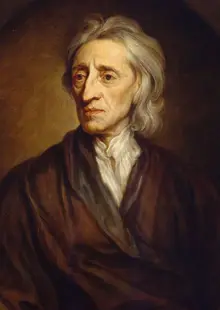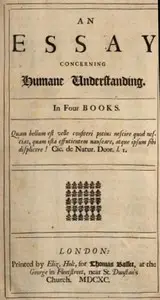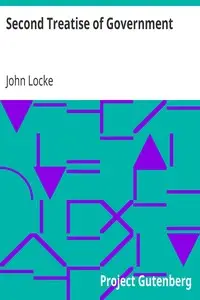
John Locke
John Locke was an English philosopher and physician, widely regarded as one of the most influential of Enlightenment thinkers and commonly known as the "father of liberalism". Considered one of the first of the British empiricists, following the tradition of Francis Bacon, Locke is equally important to social contract theory. His work greatly affected the development of epistemology and political philosophy. His writings influenced Voltaire and Jean-Jacques Rousseau, and many Scottish Enlightenment thinkers, as well as the American Revolutionaries. His contributions to classical republicanism and liberal theory are reflected in the United States Declaration of Independence. Internationally, Locke's political-legal principles continue to have a profound influence on the theory and practice of limited representative government and the protection of basic rights and freedoms under the rule of law.

An Essay Concerning Humane Understanding, Volume 1 MDCXC, Based on the 2nd Edition, Books 1 and 2
** Uncover the surprising truth about how people gain knowledge in a revolutionary exploration of the human mind that overturns long-held beliefs about innate ideas.
By John Locke

Second Treatise of Government
A groundbreaking argument against the idea of divinely appointed rulers asserts the rights of the individual and the necessity of a government formed by the consent of the governed.
By John Locke

An Essay Concerning Humane Understanding, Volume 2 MDCXC, Based on the 2nd Edition, Books 3 and 4
Explore how people create meaning as a book examines language and its impact on knowledge.
By John Locke
